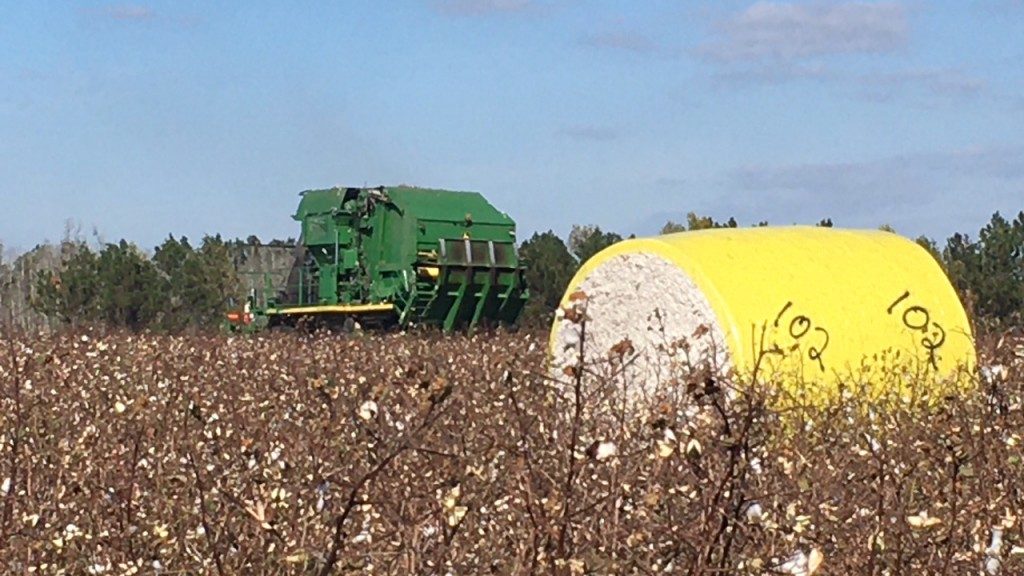I hope everybody has seen the forecast for the next few days. Below is the forecast from the National Weather Service (12/21/22) for the Moultrie-Colquitt County area.

Below are a few words from Lawton Stewart, UGA Beef Cattle Specialist, on the upcoming cold weather and beef cattle…
We are expecting extreme cold conditions over the next couple of days. Here are a few tips to help cattle through this stretch, especially for those that have started the calving season.
Windbreak: This may be the biggest factor to help cattle get through the extreme wind chill we will see on Friday. Cattle will often seek out relief from wind more so than food or water. This can be stands of trees, stacks of round bales, or man-made structures. Placing this close to location of feeding will help ensure they find the windbreak, as well as consume the proper amount of calories.
Bedding: Keeping cattle dry is second most important factor for cattle. After the large amount of rain many have received since Thanksgiving, most are dealing with mud. Move cattle to a dry pasture for the next several days.
Nutrition: Cattle need more calories to maintain their body heat in extreme cold; up to 30% more. Starting at least 1-2 days prior to the expected weather, plan on offering higher quality hay or feeding 4-6 pounds of supplement. If cattle are not already receiving corn, do not start feeding straight corn. I would recommend that the supplement be greater than 70% TDN and 15% CP. A few simple options:
- Whole cottonseed
- Dried distillers grains
- Corn gluten feed
- 50:50 of corn gluten feed and soybean hulls
- 33:33:33 of corn gluten feed, corn, and soybean hulls
- Commercial feed
Water: Most waterers will freeze in this weather. In parts of north Georgia, it will remain below freezing for more than 48 hours. Be sure to check water sources to be sure cattle have access.
For more information on planning for cold weather, please contact your local Extension office at 1-800-ASK-UGA-1 (1-800-275-8421) or extension.uga.edu.
What about my show animals?
As we are all aware of, we are about to experience some extremely cold temperatures at night starting Friday with not a lot of warming up during the day. Show exhibitors should take extra care to insure their show animals stay warm and dry. The last thing they need is for this cold weather to cause their animals to get sick.
Some food for thought that you may want to pass along to your show exhibitors:
Tips for all species:
- If possible, bring all show animals inside an enclosed barn or pen for the night. The goal is to keep them as warm and dry as possible.
- Bed them down on shavings or oat/wheat straw. You want to get them up off the cold ground or concrete.
- Temperatures are going to drop way below freezing, make sure they have a clean, fresh supply of water. You may even have to break the ice each morning to allow them to drink.
- You may want to increase the amount of feed you are giving them. Remember, they are going to be converting that feed into body heat, not weight during the next week.
Tips for show pigs:
- Be sure to get show pigs into a warm & dry environment. Preferably an enclosed pen or barn.
- You will want to bed your pigs down really well. You can use shavings but a bale or two of wheat/oat straw will work best. Pigs will burrow down under the straw to stay warm! It doesn’t matter if your pigs are own dirt or concrete, they need to be bedded down to get them up of the cold dirt or concrete.
- You can also use heat lamps, but please be careful! See the link below for tips on how to safely use a heat lamp.
- Don’t hang the heat lamps so low that you burn your pig’s topline.
- If you are using straw to bed your pigs down with, don’t hang the lamp low enough that you risk catching the straw on fire.
- If your pigs drink from a nipple waterer, you may have to hand-water your pigs during the next few days. Pipes and water hoses are going to freeze during these extremely low temperatures.
Below is a link to an article on how to use heat lamps safely:
